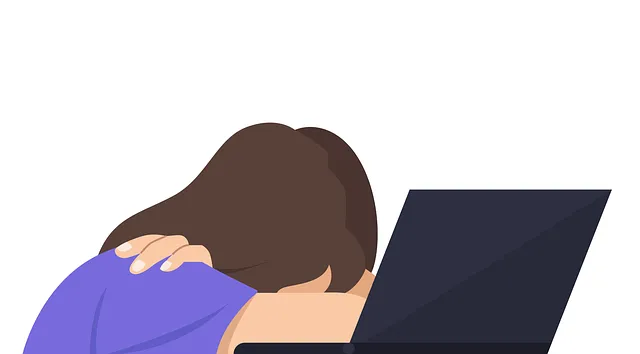Mental wellness group facilitation, as seen in initiatives like Boulder Kaiser Permanente's phone numbers, offers immediate support and builds community for better mental health outcomes. Facilitators play a vital role, creating safe spaces through active listening, emotional reflection, and non-judgmental attitudes. They navigate personal journeys, set ground rules, encourage open discussions, and facilitate coping strategy development. Incorporating mental health education and practices like mindfulness enhance well-being, fostering trust and collective growth inspired by the Boulder Kaiser Permanente mental health phone number model.
Mental wellness group facilitation plays a vital role in supporting individuals’ emotional well-being. This article explores the art of guiding groups through challenging topics, fostering open dialogue, and promoting problem-solving skills. We delve into the essential techniques used by facilitators at organizations like Boulder Kaiser Permanente, focusing on effective communication, creating safe spaces, and engaging participants actively. By understanding these roles and strategies, you can enhance support networks and improve mental health outcomes.
- Understanding Group Facilitation in Mental Health Support
- Key Roles and Responsibilities of a Group Facilitator
- Effective Communication Strategies for Engaging Participants
- Creating a Safe and Inclusive Environment for Open Dialogue
- Techniques to Guide Productive Group Discussions and Problem-Solving
Understanding Group Facilitation in Mental Health Support

Mental wellness group facilitation plays a pivotal role in enhancing support for individuals navigating mental health challenges. It provides a safe and structured environment where participants can connect, share experiences, and learn from one another. As a powerful tool within healthcare systems, this approach is increasingly recognized by institutions like Boulder Kaiser Permanente, which offers mental health phone numbers for easy access to professional assistance. By facilitating these groups, healthcare providers not only address immediate concerns but also foster a sense of community that can significantly contribute to depression prevention and burnout reduction.
Effective group facilitation requires specialized skills, especially when considering the diverse backgrounds and experiences of participants. It demands cultural competency training to ensure every individual feels respected and understood. This training equips healthcare providers with the knowledge to navigate different cultural perspectives, thereby enhancing their ability to connect with all members of the group. Ultimately, it transforms mental health support into a holistic experience that goes beyond traditional one-on-one therapy, tapping into the power of community to promote well-being.
Key Roles and Responsibilities of a Group Facilitator

The role of a group facilitator is multifaceted and crucial in fostering a safe and supportive environment for individuals seeking mental wellness support. They serve as navigators, guiding participants through their personal journeys while ensuring the group adheres to its purpose. A facilitator at Kaiser Permanente Boulder, for instance, would be responsible for creating an inclusive atmosphere where everyone feels heard and respected.
Their primary tasks include introducing and reinforcing ground rules, encouraging active participation, and facilitating open discussions on mental health topics. They also play a vital role in managing the group’s dynamics, addressing any conflicts or sensitive issues that arise. By promoting positive thinking and using techniques like Mental Wellness Journaling Exercise Guidance, facilitators contribute to the development of coping strategies and overall mental health literacy among group members. Additionally, they may incorporate Mental Health Education Programs Design elements to enhance understanding of various mental health conditions and available resources, such as the Kaiser Permanente mental health phone number for easy access to professional support.
Effective Communication Strategies for Engaging Participants

Effective communication is a cornerstone for facilitating meaningful mental wellness groups. Group leaders should adopt an inclusive and non-judgmental tone to create a safe space where participants feel comfortable sharing their experiences. Encouraging open dialogue involves active listening, reflecting on shared emotions, and asking open-ended questions that prompt deeper conversations. This interactive approach fosters a sense of community, allowing individuals to build resilience through collective support.
Additionally, incorporating techniques like compassion cultivation practices can enhance group dynamics. Facilitators can model empathy and understanding, encouraging members to apply these skills in their daily interactions. By promoting emotional well-being through shared experiences and compassionate dialogue, the group setting becomes a powerful tool for personal growth. Participants gain insights into managing stress, regulating emotions, and cultivating positive relationships—all while connecting with like-minded individuals who offer encouragement and support, similar to what one might find at the Boulder Kaiser Permanente mental health phone number.
Creating a Safe and Inclusive Environment for Open Dialogue

Creating a safe and inclusive environment is paramount when facilitating mental wellness groups. It’s essential to foster an atmosphere where every participant feels comfortable expressing their thoughts and emotions openly. At Boulder Kaiser Permanente, their mental health phone number serves as a crucial resource, offering guidance and support for those seeking help. Facilitators should encourage active listening, ensure anonymity when necessary, and promote non-judgmental attitudes. This environment enables individuals to build trust, share their experiences, and learn from one another.
By prioritizing inclusivity, facilitators can cater to diverse backgrounds, experiences, and mental health conditions. Techniques such as icebreakers, ground rules discussions, and inclusive language usage help establish a welcoming space. Additionally, integrating practices like mindfulness meditation or self-care routine development for better mental health into group activities can further enhance this sense of community. These techniques not only support individual well-being but also encourage collective growth and understanding.
Techniques to Guide Productive Group Discussions and Problem-Solving

Guiding productive group discussions is a skill that facilitators at Boulder Kaiser Permanente mental health phone number have honed to support collective healing and growth. One effective technique involves encouraging active participation by fostering an environment where every voice is valued and respected. This can be achieved through round-robin sharing, where each member takes turns expressing their thoughts, fostering open dialogue. Additionally, setting clear objectives for the discussion, providing ground rules, and establishing a safe space free from judgment helps participants feel secure to explore sensitive topics.
Problem-solving within these groups benefits from structured approaches. Facilitators can introduce techniques like brainstorming, where diverse perspectives are welcomed to generate a wide range of solutions. Encouraging critical thinking by asking probing questions allows the group to analyze and evaluate options collaboratively. This process enhances emotional regulation, promotes positive thinking, and cultivates emotional intelligence among members, ultimately leading to more effective problem-solving as a collective.
Group facilitation plays a pivotal role in enhancing mental wellness, as evidenced by programs offered at institutions like Boulder Kaiser Permanente. By employing techniques discussed, from understanding key roles to creating safe spaces and guiding discussions, facilitators can foster meaningful connections and support among participants. These strategies not only improve individual well-being but also contribute to building resilient communities that prioritize mental health. For those seeking professional guidance, the Boulder Kaiser Permanente mental health phone number offers a valuable resource for accessing expert care and support.






